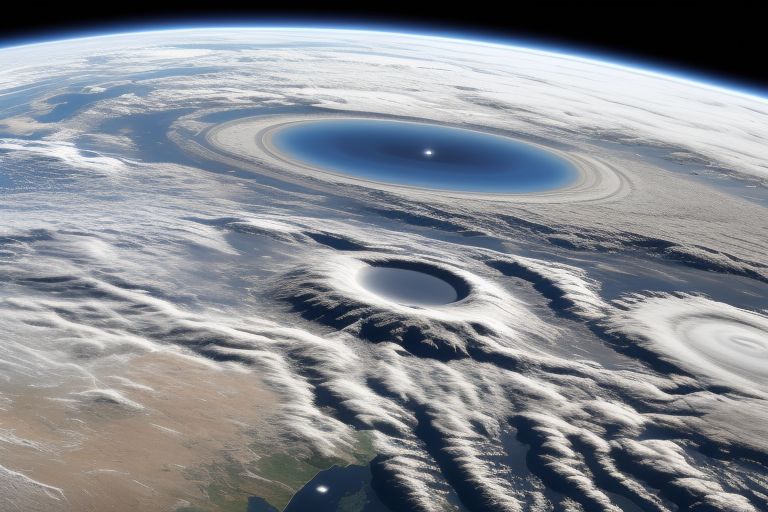Space research has long transcended the boundaries of mere exploration, significantly impacting various fields of study on Earth, notably climate science. Through the deployment of satellites and the use of advanced space-based technologies, researchers have gained invaluable insights into Earth’s climate system, aiding in the understanding, monitoring, and management of our planet’s environment.
Understanding Earth’s Climate System
Satellites play a pivotal role in climate research by providing comprehensive data that is impossible to collect from the ground. They offer a unique vantage point to observe and analyze Earth’s atmospheric conditions, ocean currents, and land surfaces.
Key Contributions of Space Research to Climate Science
- Global Temperature and Weather Monitoring: Satellites equipped with thermal sensors monitor global and regional temperature changes, providing data that helps scientists understand the dynamics of climate change and weather patterns.
- Ice and Snow Cover Analysis: Satellites observe changes in polar ice caps and glaciers, offering critical data on the rates of melt and their implications for global sea levels.
- Oceanography: Space research has revolutionized the study of oceans, allowing for the precise measurement of sea surface temperatures, ocean color, and phytoplankton activity, all of which play crucial roles in climate regulation.
Technological Advancements in Space-Based Observations
The advancements in space technology have significantly enhanced the accuracy and efficiency of climate observations.
- Earth Observation Satellites: Satellites like NASA’s Terra and Aqua and the European Space Agency’s Copernicus satellites are equipped with instruments that measure a wide range of climatic factors including atmospheric gases, aerosols, and solar radiation.
- High-Resolution Imaging: Improved imaging technologies allow for detailed observations of deforestation, desertification, and urbanization, assessing their impact on the climate.
- Data Integration and Modeling: Advanced computational models integrate data from multiple space missions, improving climate prediction models and helping policymakers make informed decisions.
Impact of Space Research on Climate Policy and Action
Space research significantly contributes to the formulation of climate policies by providing undeniable evidence of climate change and a clear picture of its impacts.
- Informing Policy Decisions: Comprehensive data from space research informs international climate agreements such as the Paris Agreement, helping to set targets for reducing greenhouse gas emissions.
- Disaster Preparedness and Response: Satellite data is crucial for predicting severe weather events like hurricanes and droughts, enabling better preparedness and mitigating their impacts on communities.
- Environmental Monitoring: Continuous monitoring from space ensures compliance with environmental regulations and helps track the effectiveness of environmental conservation efforts.
Challenges and Future Prospects
While space research has dramatically advanced climate science, it faces challenges that need addressing to maximize its potential.
- Data Accessibility: Improving the accessibility of satellite data for researchers across the globe is essential for a comprehensive understanding of global climate patterns.
- Interdisciplinary Collaboration: Enhancing collaboration between space scientists and climate scientists can lead to more innovative approaches to analyzing and interpreting data.
- Sustained Funding: Continuous funding is crucial for the maintenance of existing satellites and the development of new technologies to keep pace with the evolving needs of climate science.
Conclusion
The contributions of space research to understanding Earth’s climate are invaluable. By providing a macroscopic perspective of our planet’s climate systems, space research not only enhances our understanding of environmental changes but also empowers global actions towards sustainability. Continued investment and innovation in space technology are imperative to furthering our knowledge of the Earth’s climate, ultimately contributing to a sustainable future for our planet.




















+ There are no comments
Add yours